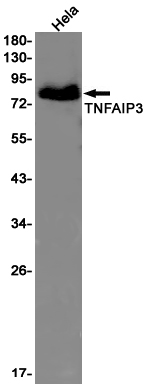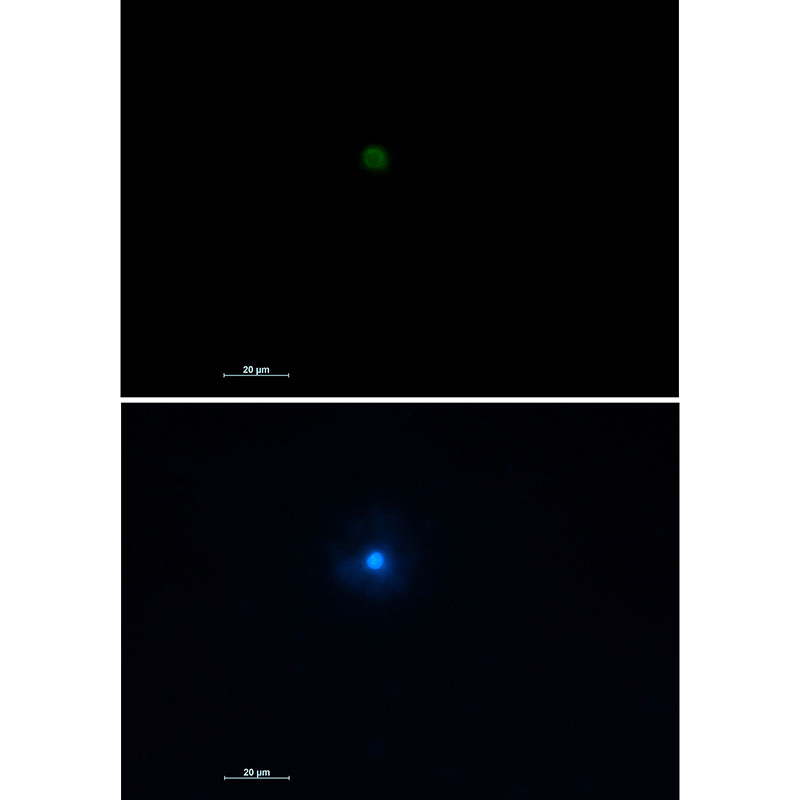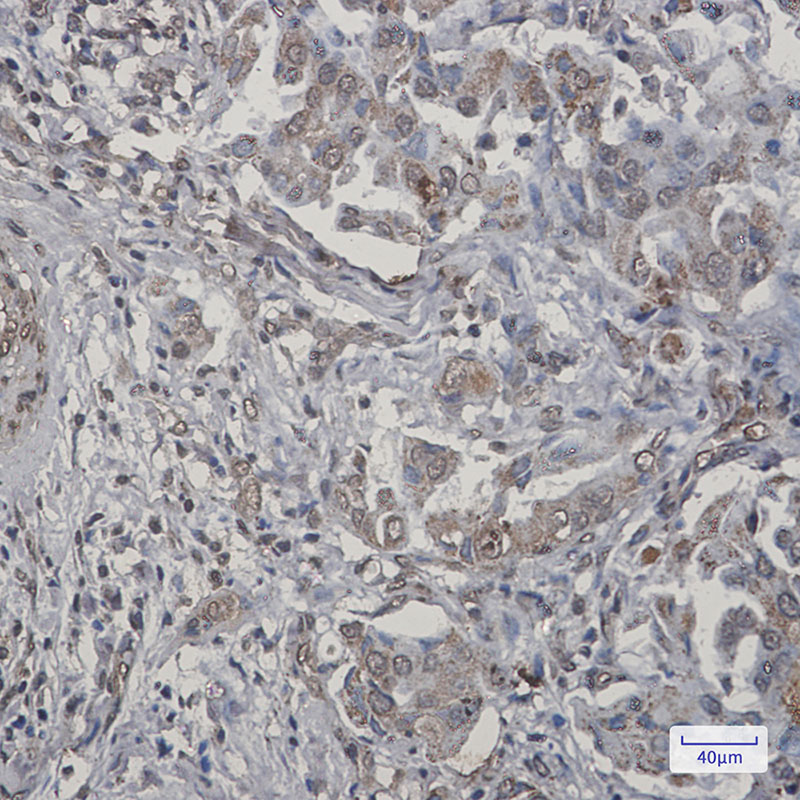


| WB | 1/500-1/1000 | Human,Mouse,Rat |
| IF | 咨询技术 | Human,Mouse,Rat |
| IHC | 1/50-1/100 | Human,Mouse,Rat |
| ICC | 1/50-1/200 | Human,Mouse,Rat |
| FCM | 咨询技术 | Human,Mouse,Rat |
| Elisa | 咨询技术 | Human,Mouse,Rat |
| Aliases | TNFAIP3; OTUD7C; Tumor necrosis factor alpha-induced protein 3; TNF alpha-induced protein 3; OTU domain-containing protein 7C; Putative DNA-binding protein A20; Zinc finger protein A20 |
| Entrez GeneID | 7128 |
| WB Predicted band size | Calculated MW: 90 kDa; Observed MW: 82 kDa |
| Host/Isotype | Rabbit IgG |
| Antibody Type | Primary antibody |
| Storage | Store at 4°C short term. Aliquot and store at -20°C long term. Avoid freeze/thaw cycles. |
| Species Reactivity | Human |
| Immunogen | A synthetic peptide of human TNFAIP3 |
| Formulation | Purified antibody in TBS with 0.05% sodium azide,0.05%BSA and 50% glycerol. |
+ +
以下是关于TNFAIP3抗体的3篇示例参考文献(注:以下为模拟示例,实际文献需通过学术数据库检索):
---
1. **文献名称**:*Autoantibodies against TNFAIP3 in systemic lupus erythematosus correlate with disease activity*
**作者**:Smith J, et al.
**摘要**:该研究发现,系统性红斑狼疮(SLE)患者血清中存在抗TNFAIP3的自身抗体,阳性率约15%,且抗体水平与疾病活动指数(SLEDAI)呈正相关,提示其可能参与SLE的免疫失调。
2. **文献名称**:*TNFAIP3 antibodies disrupt NF-κB signaling in rheumatoid arthritis*
**作者**:Wang L, et al.
**摘要**:研究揭示类风湿关节炎(RA)患者中抗TNFAIP3抗体会干扰TNFAIP3的泛素酶功能,导致NF-κB信号通路持续激活,加剧滑膜炎症和关节破坏。
3. **文献名称**:*TNFAIP3 autoantibodies as a novel biomarker in autoimmune hepatitis*
**作者**:Garcia R, et al.
**摘要**:首次报道自身免疫性肝炎(AIH)患者中抗TNFAIP3抗体的存在,其特异性高于传统抗体(如ANA),可能成为AIH的新型诊断标志物。
---
如需真实文献,建议通过PubMed或Google Scholar搜索关键词“TNFAIP3 autoantibodies”或“A20 antibody”获取最新研究。
TNFAIP3 (Tumor Necrosis Factor Alpha-Induced Protein 3), also known as A20. is a ubiquitin-editing enzyme encoded by the TNFAIP3 gene. It plays a critical role in regulating immune and inflammatory responses by modulating nuclear factor-kappa B (NF-κB) signaling pathways. Initially identified as a protein rapidly induced by TNF-α, TNFAIP3 acts as a negative feedback regulator, dampening NF-κB activation through its deubiquitinase and ubiquitin ligase activities. This dual function allows it to remove pro-inflammatory signaling molecules and promote their degradation, thereby maintaining immune homeostasis.
Antibodies targeting TNFAIP3 are essential tools for studying its expression, localization, and function in various physiological and pathological contexts. They are widely used in techniques like Western blotting, immunohistochemistry, and immunofluorescence to investigate TNFAIP3's role in autoimmune diseases (e.g., rheumatoid arthritis, lupus), cancers (e.g., lymphomas), and inflammatory disorders. Dysregulation of TNFAIP3 has been linked to aberrant immune activation, making it a focus for therapeutic research.
TNFAIP3 antibodies are often validated in specific cell types or tissues, given its variable expression levels across immune cells, epithelial cells, and tumor microenvironments. Researchers also utilize these antibodies to explore post-translational modifications, interactions with signaling partners, and potential biomarkers for disease prognosis. Understanding TNFAIP3's regulatory mechanisms via antibody-based studies contributes to insights into immune tolerance and targeted treatment strategies.
×